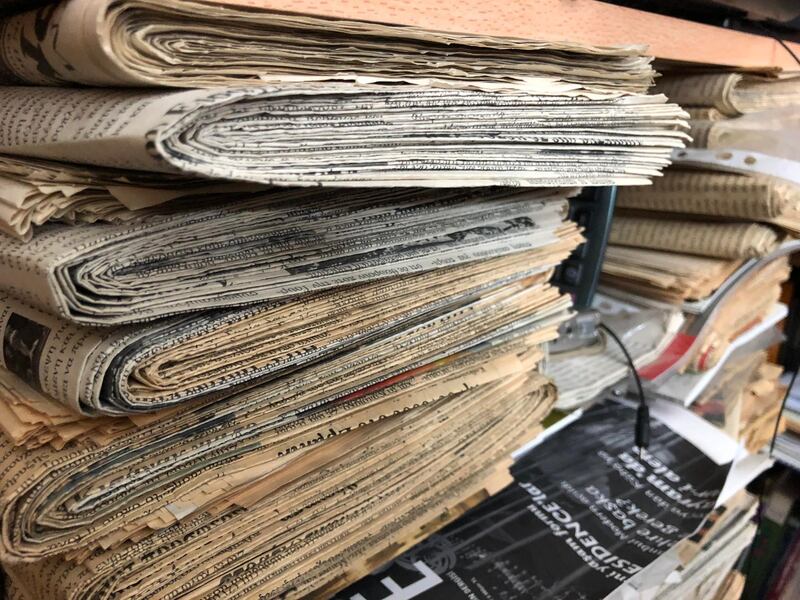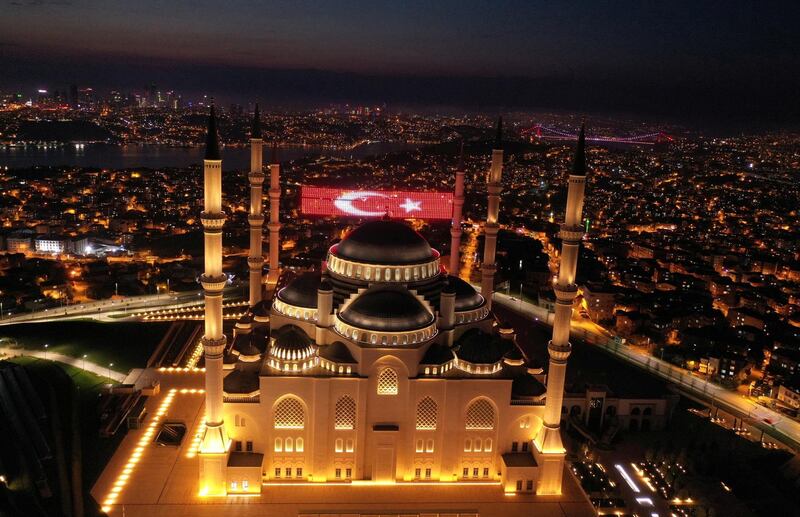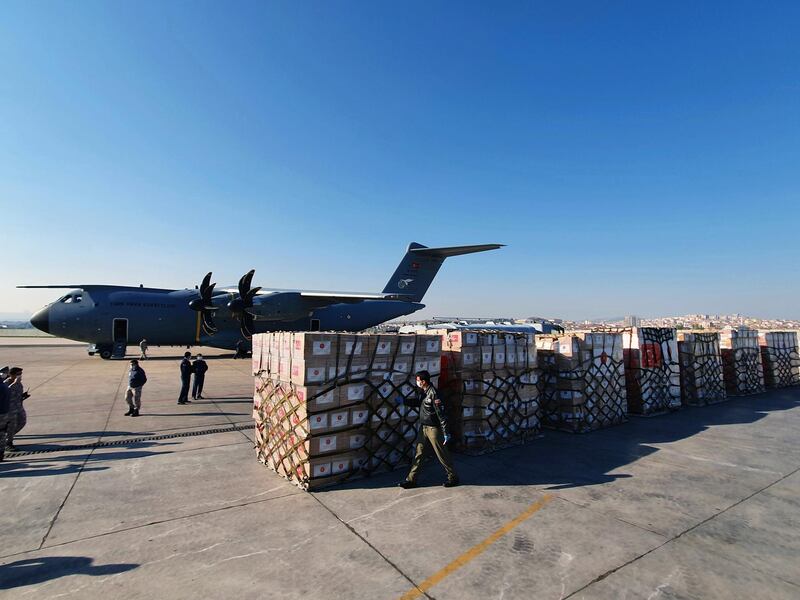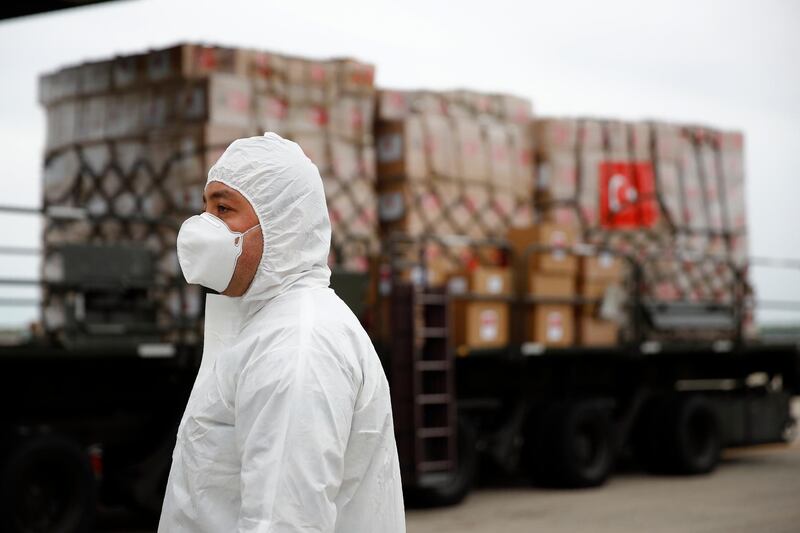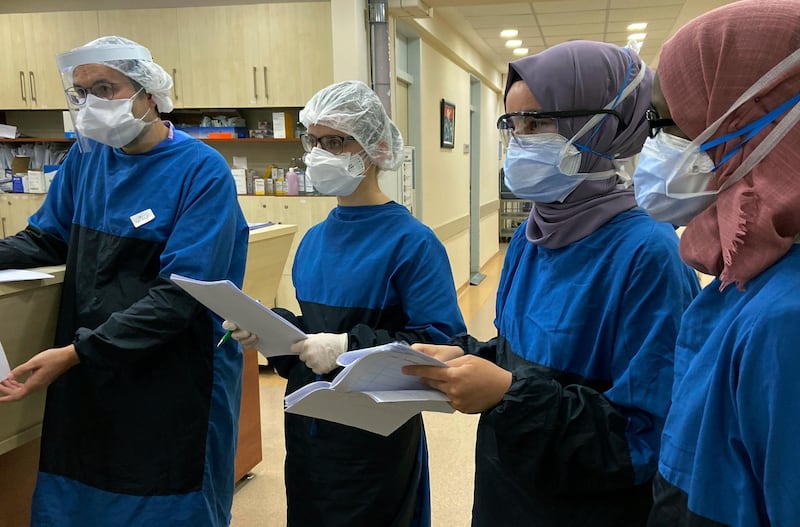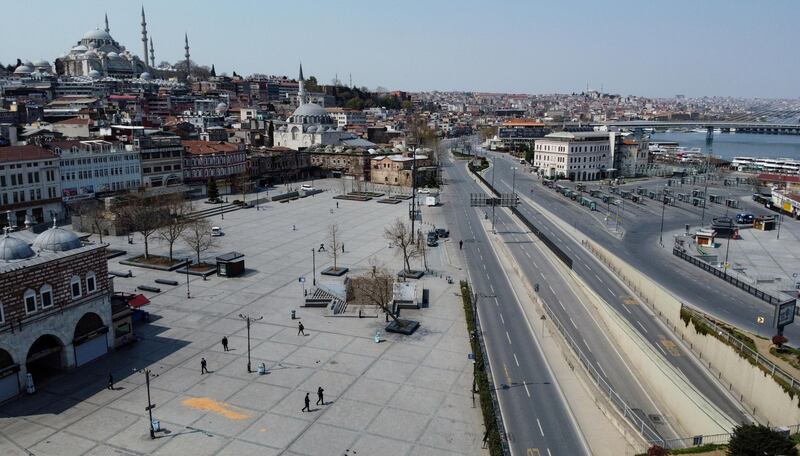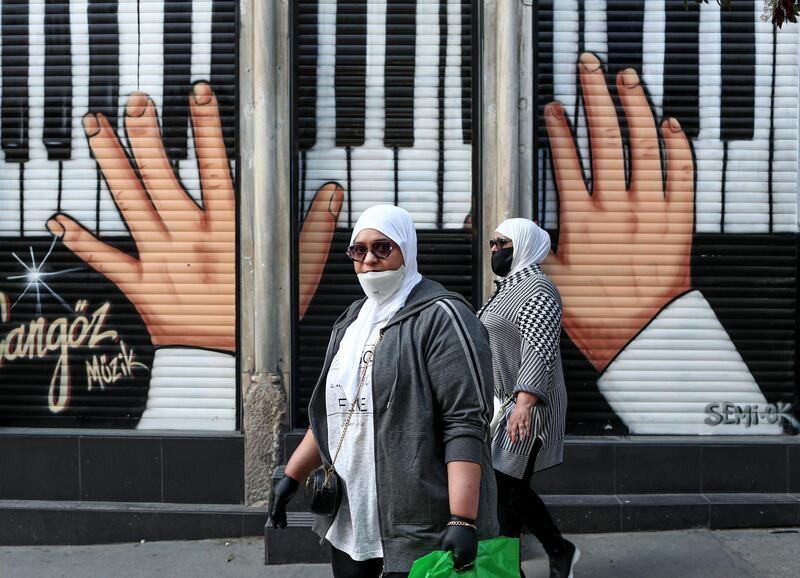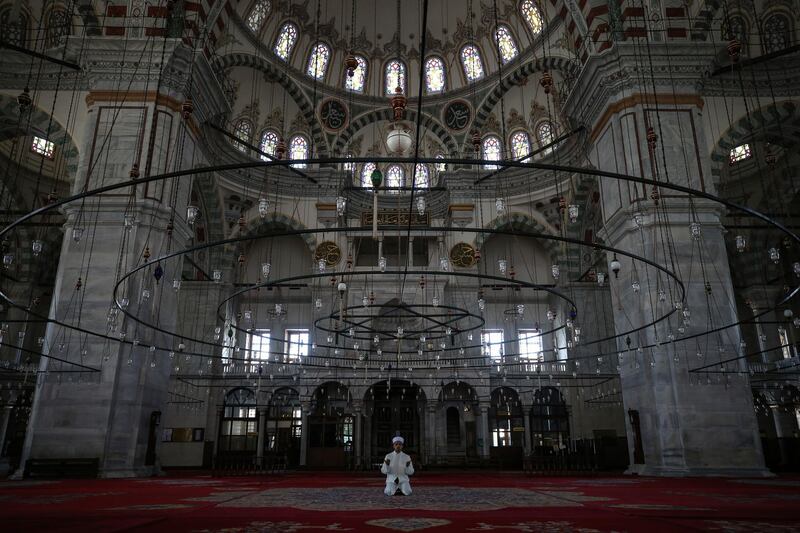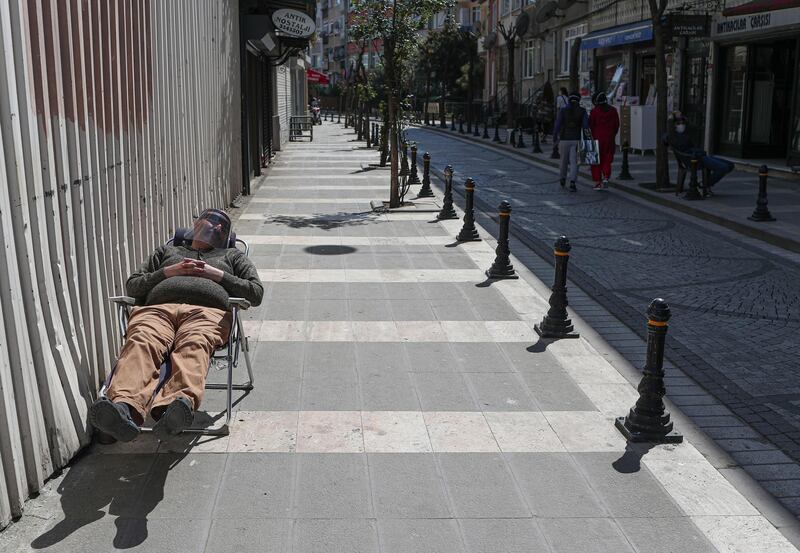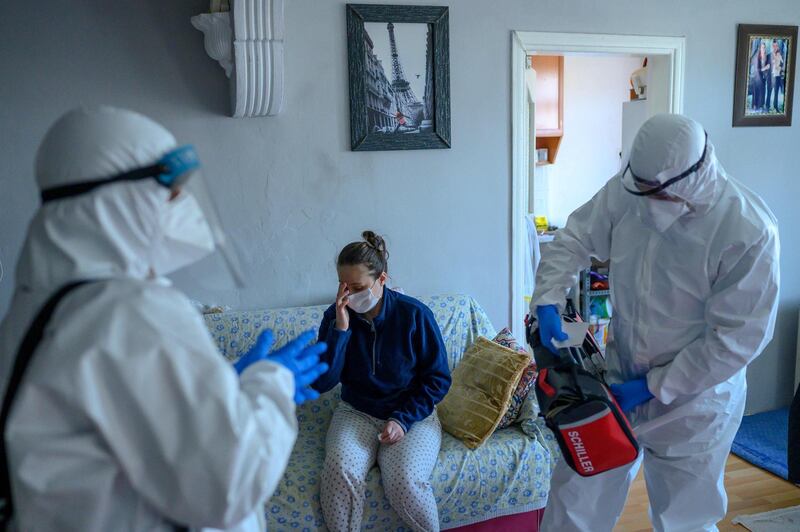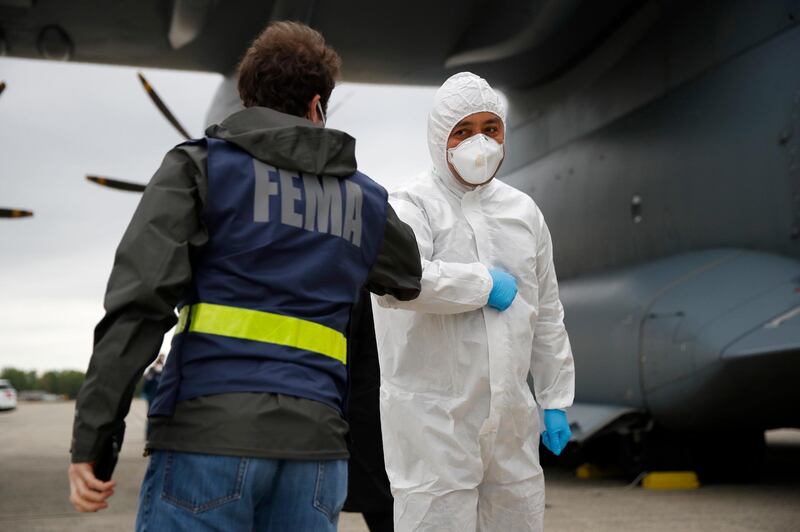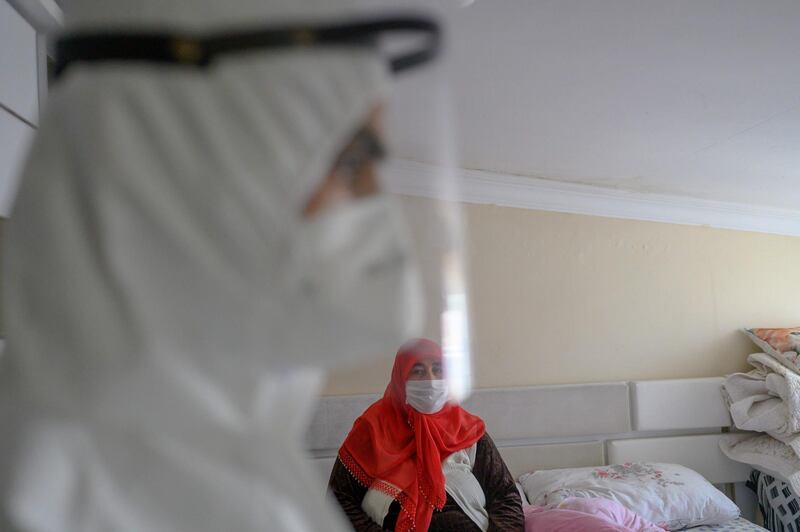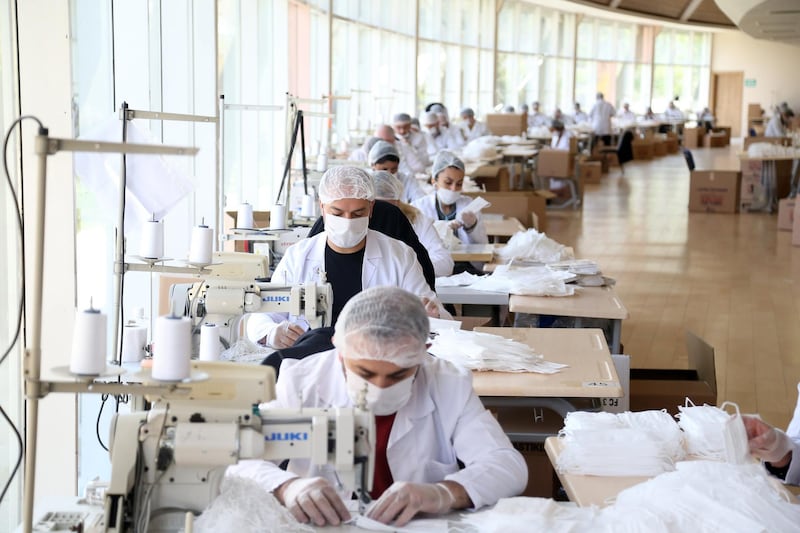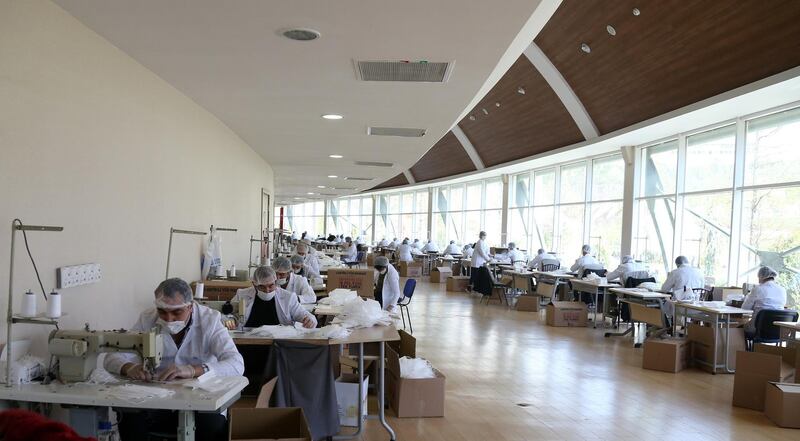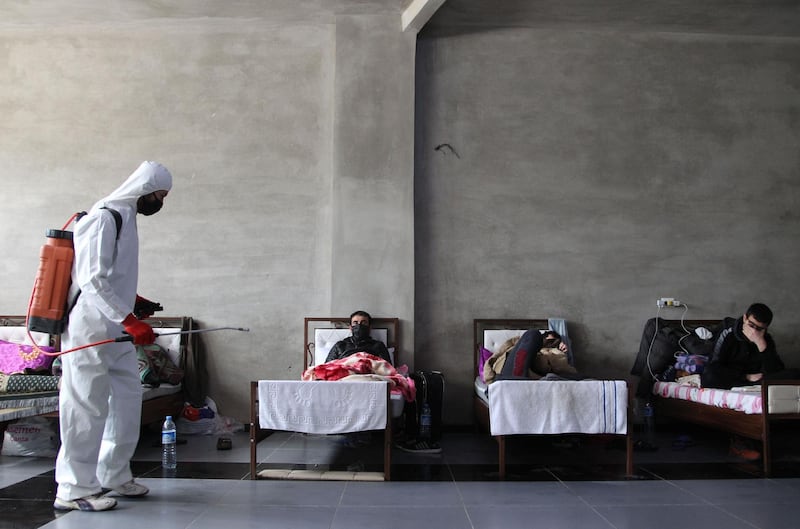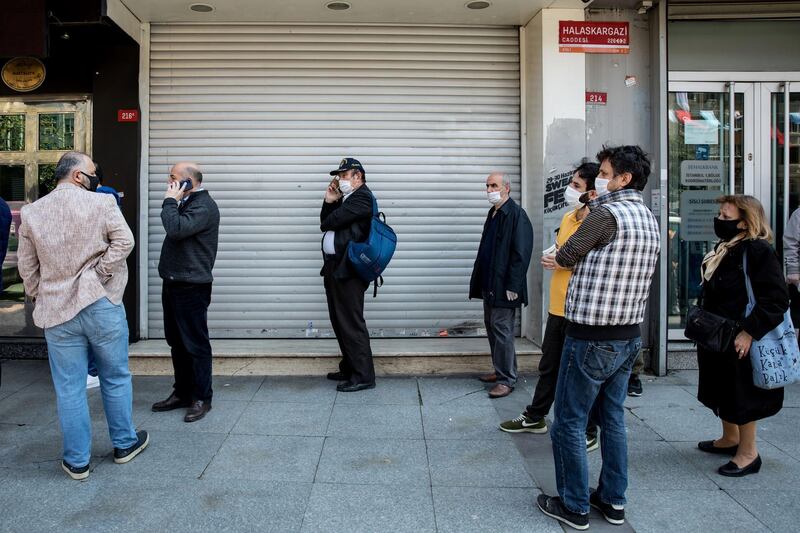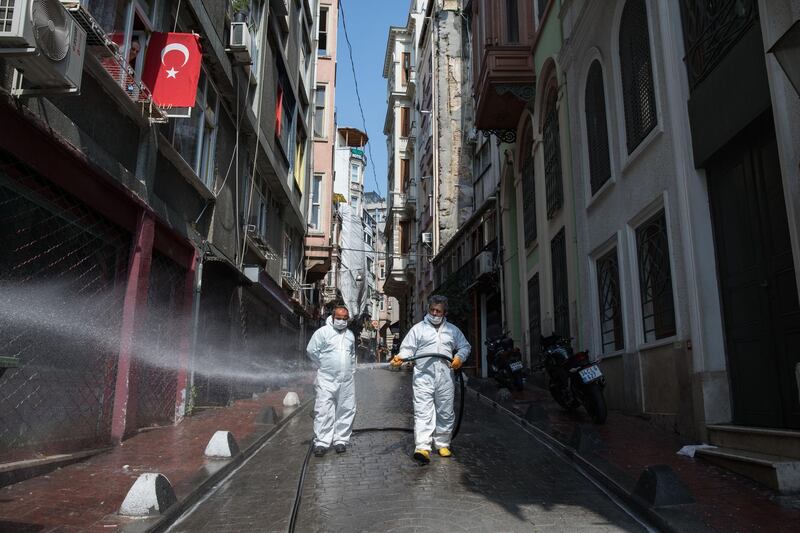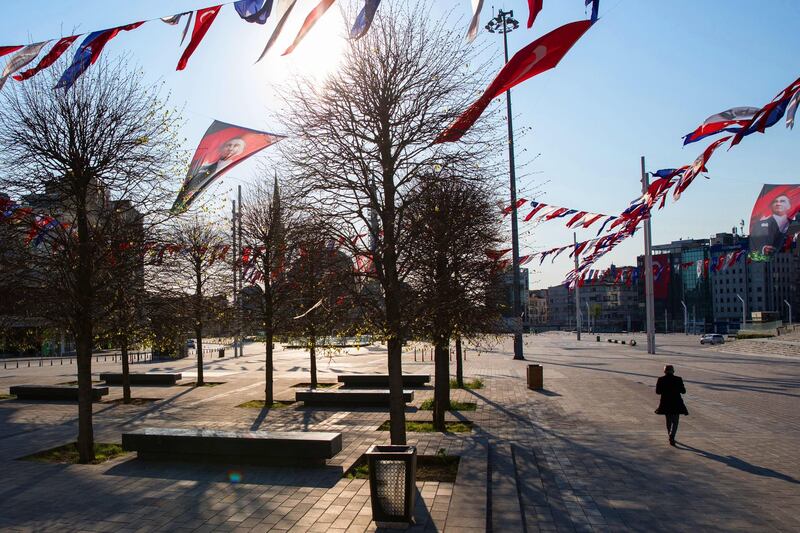The office of possibly the world’s only daily newspaper to be produced by a father-and-son team can be found in the bustling Istanbul neighbourhood of Ferikoy.
But calling Apoyevmatini's premises an "office" is a little misleading. The Greek-language paper – one of the oldest in Turkey – is written, laid out and sent to the printers from the book-lined back room of 81-year-old Mihail Vasiliadis's apartment.
Vasiliadis the elder is a shrewd journalist of the old school and it is easy to be impressed by his determination to keep his paper alive, despite its print run now being limited to just 600 Istanbul-Greek families, a remnant of a once-thriving minority.
His grit has proved useful in a turbulent, six-decade career in Turkey and Greece – wary neighbours who have gone through conflict, social turmoil and military coups. It also fuels him as he and his son Minas, 36, work anywhere between 15 to 18 hours a day to make sure Apoyevmatini's loyal readers get their copy.
“I think you cannot find another example where two guys are publishing a daily newspaper,” Mihail laughs. “I should apply to the Guinness Book of World Records.”
Apoyevmatini is one of the oldest of Istanbul's minority-language papers – Agos (whose chief editor Hrant Dink was murdered in 2007) is published in Armenian and Turkish, and Salom serves the country's Jewish community. The Vasiliadis' paper – founded by Konstantinos and Antonis Vasiliadis, two of Mihail's uncles, in July 1925, less than two years after Turkey became a republic – is an intriguing mix of the local and the international, as Mihail explains.
“When we look today, we see that all the world is watching this area … Turkish-Greek relations; Cyprus; the new developments in the eastern Mediterranean are major issues that I cover.”
But an integral part of the paper is its community focus. News of births, marriages, deaths, graduations, baptisms and church events are part of the glue that binds the Rum (“Romans”) – as Istanbul-Greeks are known – together.
Their priorities dictate how Apoyevmatini's subscribers read their paper. "Our readers first check the last page of the newspaper because that's where the obituaries are," Mihail says. "They want to see if we have lost anyone recently. Then they check the front page."
Many bigger publications would kill to have the deep ties and loyalty that Apoyevmatini's – mostly elderly – readers have for the paper. Even its distributors – all Turks who cannot read Greek – are intimately bound up with the paper's history and survival.
“The guy who's now responsible for distributing the paper says: ‘My father raised six kids by distributing this newspaper and now it's me’.” Mihal says.
If Apoyevmatini's story is anything, it is a story of survival – both of publication and of the Istanbul-Greeks themselves.
“After certain policies that the [Turkish] government practised in the past, the Greek population has diminished greatly,” Mihail says. “It was approximately over 90,000 people in the past; now approximately 600 families remain, more or less.”
A wave of anti-Greek violence in Istanbul in September 1955 led to thousands of Greek families fleeing the country. Fighting over Cyprus in 1974 was another “turning point” for the city’s Greeks, Mihail says.
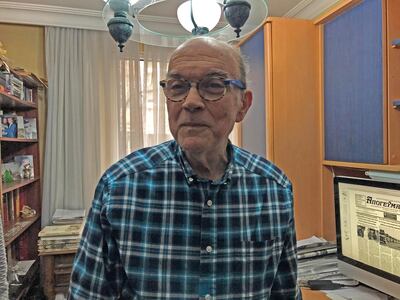
“State propaganda said that the Greeks in Istanbul are the same as the Greeks in Cyprus. So people called out on the street: ‘Your guys are killing our guys’ and we asked: ‘Who is ‘yours'? I'm from here.’ ... And in a very short time, a large number of the remaining families had to leave.”
Amid the conflict, Mihail was fighting his own battle with the authorities. A decade earlier, when he was running a weekly magazine, he was taken to court, accused of “spreading pro-Greek propaganda in a way that damages national unity”.
“The case lasted for 11 years,” Mihail says. “I was tried three times for the same case in 11 years and three times I was acquitted from the same case, but it took 11 years to get rid of the case.
“One of the Greek lawyers promised that he will take care of my case but he didn't show up at the court hearing … Therefore, at the age of 26, I had to become my own lawyer. I had to defend myself.”
It was a situation that repeated itself when, after proving his innocence in Turkey in 1975, Mihail moved to post-junta Greece and ran a newspaper called Eptalofos ("Seven Hills", another name for Istanbul).
“I published several articles on the pressure that the Muslim-Turkish minority is facing in Thrace [northern Greece],” he says. “They called me a Turkish spy and I was sent to court. Again, I had to defend myself and, of course, I was acquitted once more.”
But he returned to his home city when he received an offer in 2002 to head up Apoyevmatini, whose subscriptions had collapsed. Publishing from offices in the Syria Passage off Istanbul's famous Istiklal Street, Mihail set about rebuilding the paper.
Apoyevmatini has faced mixed fortunes since then. Although subscriptions recovered, and an online version launched in 2007 proved popular with readers overseas, its advertising revenue was hit by the financial crisis in Greece. Old editions carry now-poignant adverts from the pre-crash Bank of Greece.
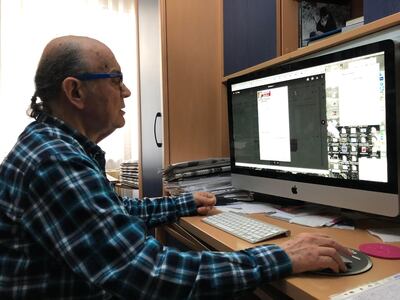
Despite a 2010 campaign by supporters of the paper which led to 300 new subscriptions from Turkish-speaking readers, in 2014 high rents forced Apoyevmatini from its city-centre office. It survived in rooms inside a nearby Greek-Orthodox church for a time, eventually decamping to Mihail's home.
When Mihail’s son, Minas, came on board his technical know-how revolutionised how the paper was produced. Cobbling together a desktop-publishing system from computer parts bought in an Athens’ Monastiraki flea market, Minas was on hand to make the transition from cut-and-paste to digital publishing as easy as possible – even while he was doing his national service in Greece.
"I used to choose the night shift to stand guard because I knew it was peak time for my father," Minas tells The National. "If necessary, we could communicate and I would give him technical instructions.
“I actually brought two phones to the army. I gambled that once the lieutenant confiscated one device, he’d be less suspicious about me carrying a cell phone. It worked.”
Now Minas is Apoyevmatini's senior editor. Minas – as a self-described "journalist, reporter, editor, columnist, accountant, public relations expert, graphic designer, secretary and errand boy" – works from 9am and finishes an edition by 2am the next morning, "if I am lucky".
He, his father and the paper – which is nearing its 100th anniversary – carry on in the spirit of the Victor Hugo quotation that adorns its masthead: "For new times, new duties". But it is the quote below Hugo's that perhaps fully reflects the paper's ethos: "No one is born, or dies, without Apoyevmatini."
Sitting in his back-room office, the latest spread of the paper on the computer screen behind him, Mihail shows off a recent email from a Greek reporter who wants to come and work for Apoyevmatini for free. Mihail rejects these offers, saying it is "unethical" to have unpaid staff. So he and Minas labour on, their small paper a bridge between two cultures.
“Both cultures are rich and I feel proud to understand them, to be a part of them,” Minas says. “I don’t feel I am being pulled between two states. What matters is being able to uphold international journalistic ethics and standards. The rest is up to politicians.”
Mihail – who somehow also finds the time to discuss current affairs on a Turkish TV show every week – is at pains to point out that despite some turbulent and dangerous times in Turkey he has always found supporters among Turkey’s people.
“When they ask me: ‘Where is your motherland? Greece or Turkey?’, I say: ‘It’s Istanbul'.”
